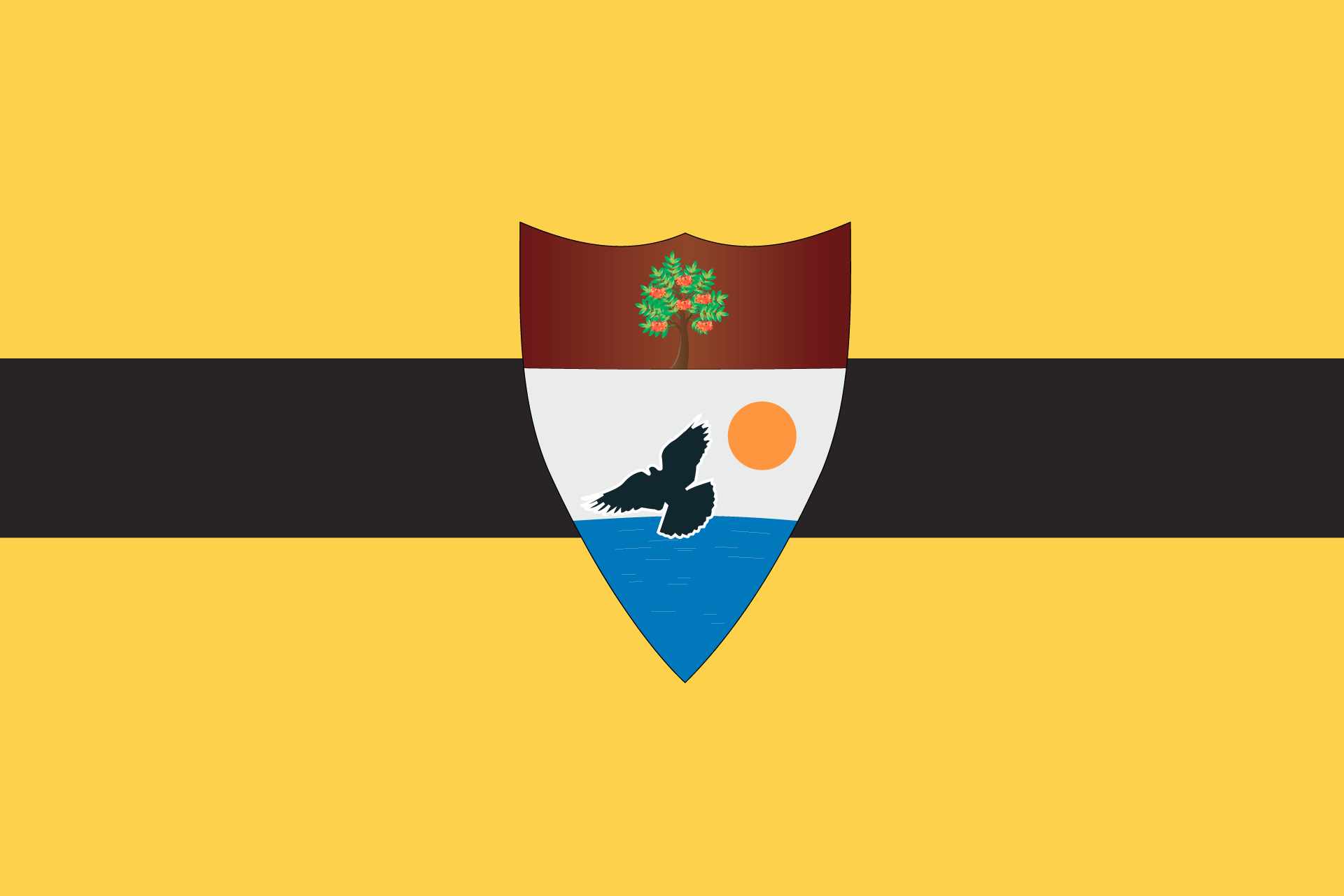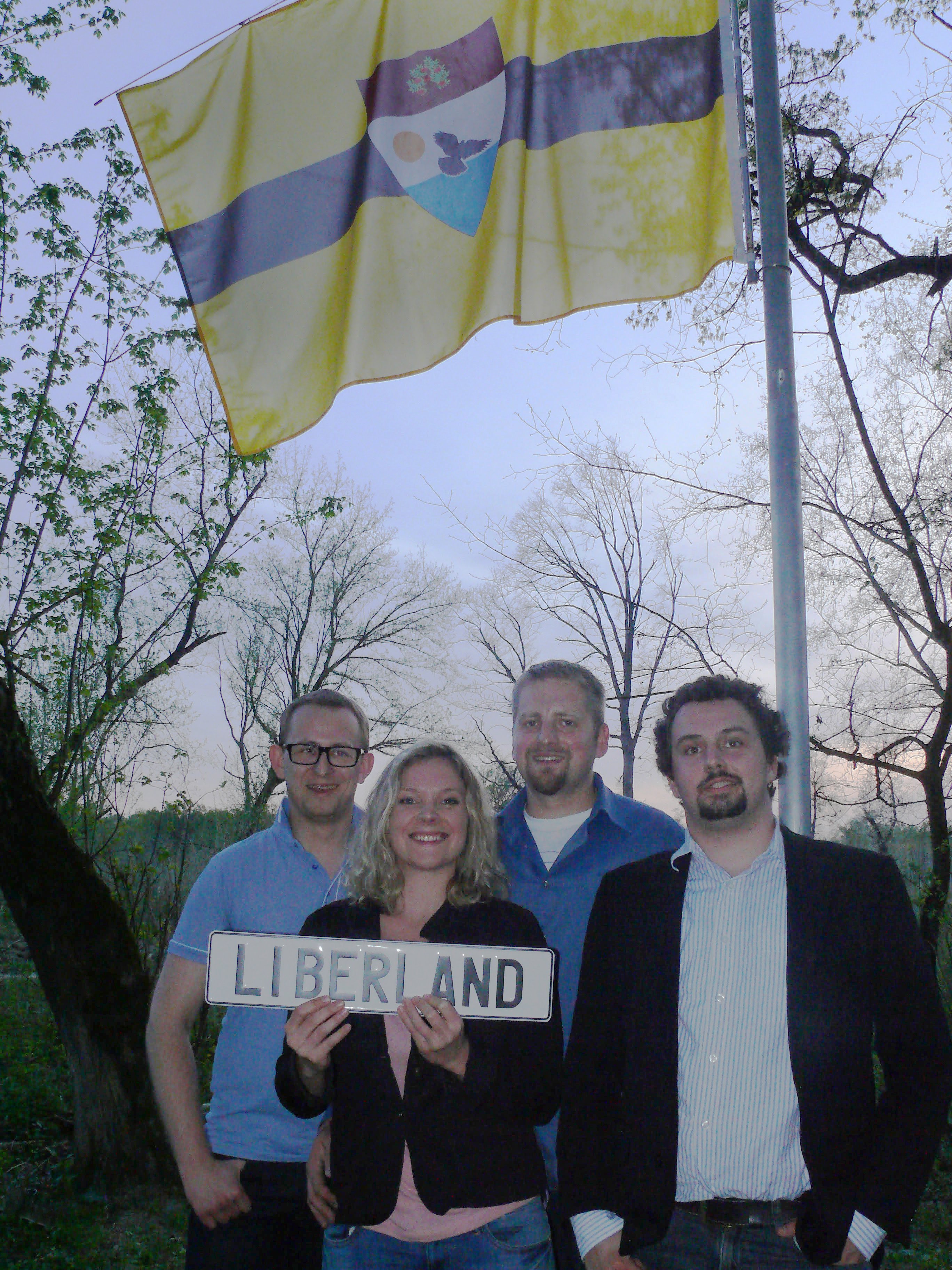
The “official” flag of the Republic of Liberland. Design by Vít Jedlička, used under Creative Commons license.
The latest trending story to take Eastern European social networks by storm is that of Europe's newest nation, the Republic of Liberland. The sapling country, yet to be recognized by any other country or the international community, is situated on a 7-square-kilometer patch of land on the Danube between Croatia and Serbia that has remained “no man's land” as part of a larger border dispute between the two countries since 1947.
When the news first landed on social networks in the Balkans on April 14, 2015, many assumed it was a late April Fool's gag. Liberland, however, is now being taken more seriously after reliable sources such as Serbia's independent Beta news agency confirmed and republished the announcement.
Europe's latest micronation (not to be confused with a microstate, which is simply a very small official country) seems to fully intend to become an official state. Liberland's president, a Czech citizen by the name of Vit Jedlicka, claimed on Liberland's Facebook page just a day after the announcement that over 1,000 people had already applied for citizenship. Jedlicka is a graduate of the CEVRO Institute of Political Science and has written extensively online about European politics, economy, and social issues. Liberland's “official” Facebook page has too gained tremendous popularity, garnering almost 17,000 likes by mid-April 2015 and growing at a fast rate.
Liberland received today more than 6000 registrations and 1000 full applications for citizenship
Posted by Vít Jedlička on Wednesday, April 15, 2015
While some still believe Liberland is a joke or an attempt to draw attention to issues that Europe is facing, many are now seriously discussing the micronation's chances of becoming the world's third largest microstate and an official country. Due to the fact that the territory is de facto terra nulius and Liberland seems to have all the elements of a state, neighboring countries and the international community may have a difficult time explaining why they would refuse to recognize it.
A part of that discussion also revolves on whether the Wikipedia entry about Liberland should be deleted from the world's largest curated knowledge site. While only a couple of Wikipedia editors called for the removal of the article, calling it “another fantasy country”, most other editors and commenters said that the article should be kept, either because it was simply a valid story to have information on or because it may actually stand a slim chance at becoming a European nation.
One Wikipedia editor explained:
This is quite likely to have significance since it's in a terra nullius created by a border conflict. Any act that's done towards this non-recognized nation is likely to have an impact on the legitimacy of either side's claims, so it definitely passes when examined for long-term notability.

Some of the founders of Liberland, upon planting the country's flag on the territory between Croatia and Serbia. Photo from Liberland.org official press release.
According to Liberland's website and the Wikipedia entry, the country's official languages are Czech, Hungarian and Serbo-Croatian, while the country's geographical coordinates are 45°46'N 18°52'E. Jot that down somewhere for a future geography test, just in case.
Applying for citizenship is as easy as sending an email with a scan of a valid photo I.D., a cover letter explaining reasons for wanting to become a citizen of the Republic of Liberland, and a telephone number, if convenient. There are restrictions to citizenship, however, as the official website and the president of Liberland himself state that they are not interested in those who identify as neo-Nazi, communist, or extremist. Individuals convicted of “serious crimes” will also immediately be refused citizenship.
What just might someday become the third smallest country in Europe, after the Vatican and Monaco, promises very low or no taxation of its citizens (see “tax haven” for more information) and a nation of citizens who:
- have respect for other people and respect the opinions of others, regardless of their race, ethnicity, orientation, or religion
- have respect for private ownership which is untouchable
All this, indeed, would be refreshing for Europe. In the meantime, whether or not the country is ever officially recognized, Liberland raises some poignant questions regarding human rights, economic status, growing extremism, and corruption for other countries in Europe.
People from across the globe are commenting on Liberland's social media pages in support of the stances that it claims to stand for — free speech, a free market, and abolition of any kind of extremism and discrimination. Users are often pointing out that these are fast-growing issues in some European countries, as well. Can Europe find its way back to rule of law or will it take a new nation to set new norms for the old continent?







8 comments
Join the NSK!
Hi, the language is at the moment Czech only, the Wikipedia article was wrong when you saw it. The official website is a better source.
The area is already part of the sovereign state of Paraduin. It was claimed on March 5.
And why not another Micro State. A Polis is easier to administer than a State. Maybe we had rushed too quickly changing the original Greek ideas into the monsters we have today. And these piddly States, if they ever wage a war against one another, very soon have enough. No Nukes, pitchforks and baseball bats more likely. And the language? I’d add Hungarian, the rest can understand one another unless they are completely stupid.
Get the latest news via Official Liberland News Facebook page.
https://www.facebook.com/liberlandnews
Nice